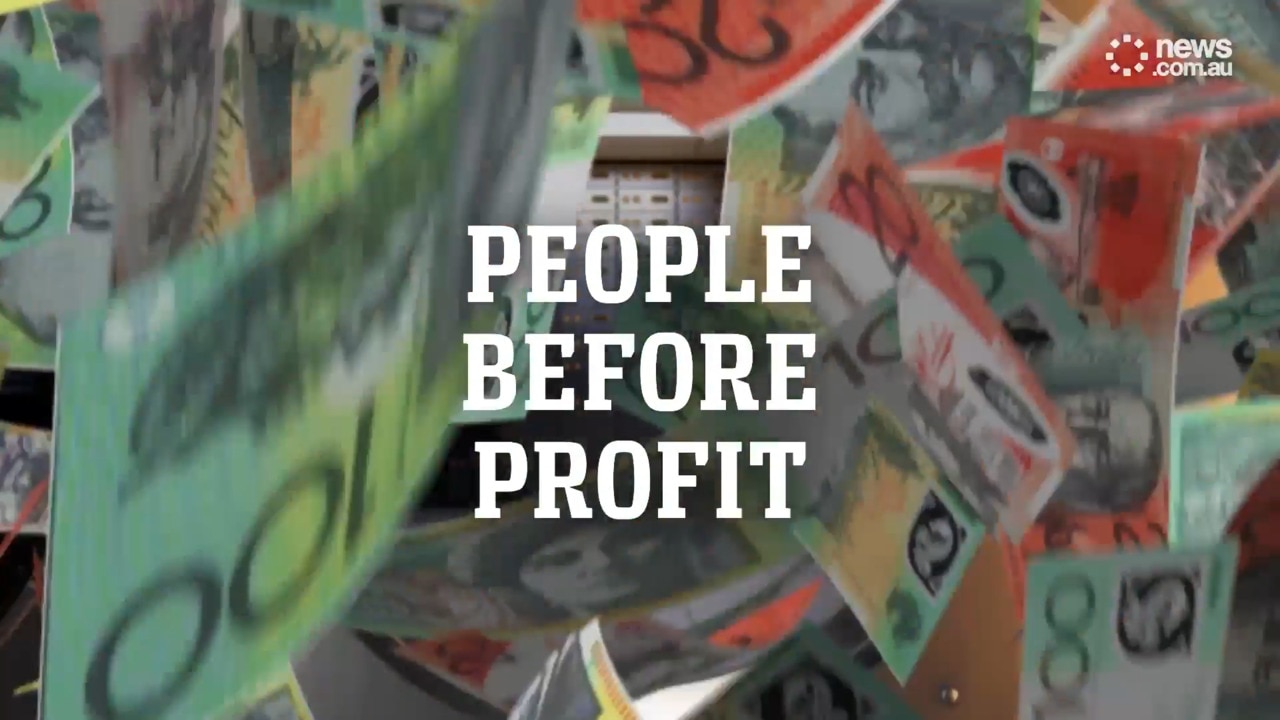The chance of you getting your money back if you’re scammed has been revealed – and it’s dire
At the moment heartbroken Australians need their bank the most, a devastating reality is forced upon them - and people have had enough.

Costs
Don't miss out on the headlines from Costs. Followed categories will be added to My News.
It is seen as a last bastion of hope for scam victims who have lost everything, but for many, dealing with the Australian Financial Complaints Authority (AFCA) has had the opposite effect.
The organisation is an independent external dispute resolution service – acting as an ombudsman of sorts – and can compel banks to pay compensation to scam victims.
But news.com.au’s analysis of AFCA’s published decisions over the past financial year - which only occurs when a case cannot be mediated between parties - has painted a damning picture of the chances of victims ever getting their money back when they challenge their bank.
According to its own data, AFCA ordered banks to fully reimburse scam victims in just 4.8 per cent of cases.
Bank customers who escalated their case all the way to AFCA’s final decision process lost $12 million to scams since June last year, but the banks only had to reimburse them $525,000.
In 61 per cent of cases, victims received nothing back, while in 28 per cent of cases, victims were awarded what is called “non-financial compensation” – where AFCA doesn’t find the bank at fault but acknowledges frustrations the customers may face.
The most likely outcome was getting nothing back at all.
That’s why news.com.au has launched People Before Profit, calling on the federal government to make it mandatory for banks to compensate scam victims – just like in the UK. In October last year, the UK introduced world leading legislation making compensation mandatory for scam victims within five business days except in cases of gross negligence.
IT’S TIME BANKS PUT PEOPLE BEFORE PROFITS. SIGN THE PETITION HERE.
According to insiders, scam victims’ chances are abysmal because AFCA’s hands are tied as it has to follow the Australia ePayments code, which is desperately in need of an overhaul.
AFCA’s non-financial compensation is capped at $5400, and according to its website, it may also decide a non-financial remedy such as a letter of apology, something which causes no end of turmoil for scam victims who have in some cases been defrauded out of their life savings.
In one published ruling, a woman who lost $499,999 to scammers was awarded just $250 in non financial compensation.
AFCA found that her bank, NAB, had delayed its attempts to recover her funds, yet they weren’t required to pay any more restitution.
Please note the amount column indicates how much was stolen by scammers while the how much column shows how much the banks were ordered to pay back victims.
Just 18 per cent of victims who had their cases heard by AFCA were able to recover a partial or full reimbursement.
One couple lost $849,000 after scammers managed to change their postal address and mobile phone number and drain their NAB account.
NAB had already refunded them the money but AFCA ordered an additional $15,909 be paid for emotional stress.
Do you have a similar story? Get in touch | alex.turner-cohen@news.com.au
In nearly every case where a victim had unwittingly transferred money to a scammer, AFCA deemed it wasn’t the bank’s fault because their customer had “authorised” the payment.
So even though victims had been tricked about where they thought their money was going, the bank was not to blame.
But in one instance, AFCA backflipped on this stance, setting a precedent for other future victims.
In the landmark ruling, a HSBC customer fell for a sophisticated spoofing scam where a fake SMS text purporting to be from his bank warned him about a possible breach to his account.
The fraudulent text appeared in a legitimate message thread with his bank.
He was told if he hadn’t made a $740 purchase to Amazon, he should call the 1300 number listed below which actually directed him to a scam call centre.
They then coaxed him into giving away two six-digit passcodes, allowing them to steal $47,000 from his mortgage account.


AFCA ruled that because of the circumstances around the fraud, he did not voluntarily give up his pin code.
“The panel is satisfied the scammer created a sense the complainant needed to act urgently to prevent the loss of his funds, and the overall impression he was dealing with the bank, and it would therefore not be fair in all the circumstances to find the disclosure of the passcodes was voluntary,” AFCA wrote in its decision.
HSBC was ordered to pay the victim the $47,000 in losses as well as lost interest plus $1500 from legal costs and non financial compensation.
At the end of last year, Australia’s corporate watchdog, ASIC, took action against HSBC over this, alleging it failed to protect 950 Australian customers from a long-running “spoofing” scam over a period of years leading to $23 million in losses.
ASIC lodged the claim against HSBC’s Australian arm in the federal court in December.
AFCA said it received more than 10,000 scam-related complaints in the 2023-24 financial year, “a record for that type of complaint”.
A spokesperson told news.com.au that only two per cent of scam complaints progressed to the final decision making process where results were published publicly.
The organisation claimed that across the board, 60 per cent of scam cases resulted in full or partial compensation for victims.
The spokesperson added that 67 per cent of cases were resolved between the parties in the first stage of AFCA’s process, when the organisation informed a bank that they had received a complaint against them.
Australian cyber expert and forensic investigator Simon Smith said a big chunk of his workload comes from scam victims hiring him to fight it out with banks in the AFCA arena.
“They’re glorified mediators,” Mr Smith said.
He said legislation is so outdated that its leaving scam victims behind.
“The law isn’t really up there yet,” he said.
Banks can do as little as send off one email to another bank to prove they attempted to recall their customers’ stolen funds.
“There needs to be regulations which makes it mandatory for them to inquire. There’s no law that says they have to try,” Mr Smith said.
One case is particularly memorable to Mr Smith because of the way Australia’s law totally failed one of his clients.
The scammers had used the victim’s ID to open accounts in their name and then siphon the money out.

AFCA ruled the man had been trying to pay money to himself, and therefore ruled in the bank’s favour.
“I said ‘this is a crime you idiots!’” Mr Smith said.
Australia’s big banks are “very good” at defending these cases, Mr Smith said.
And since AFCA isn’t an official court of law, banks can’t be forced to disclose important information.
“It’s all completely voluntarily, if the bank doesn’t hand over the information you can’t win,” he said, adding that they won’t divulge intel that “screws their case”.
“You can’t just go fishing. It’s a bit of a game,” he said.
Meanwhile, for the average scam victim, it’s a system mostly impossible to navigate.
– With Ria Pandey and Thomas Henry
alex.turner-cohen@news.com.au
More Coverage
Originally published as The chance of you getting your money back if you’re scammed has been revealed – and it’s dire





